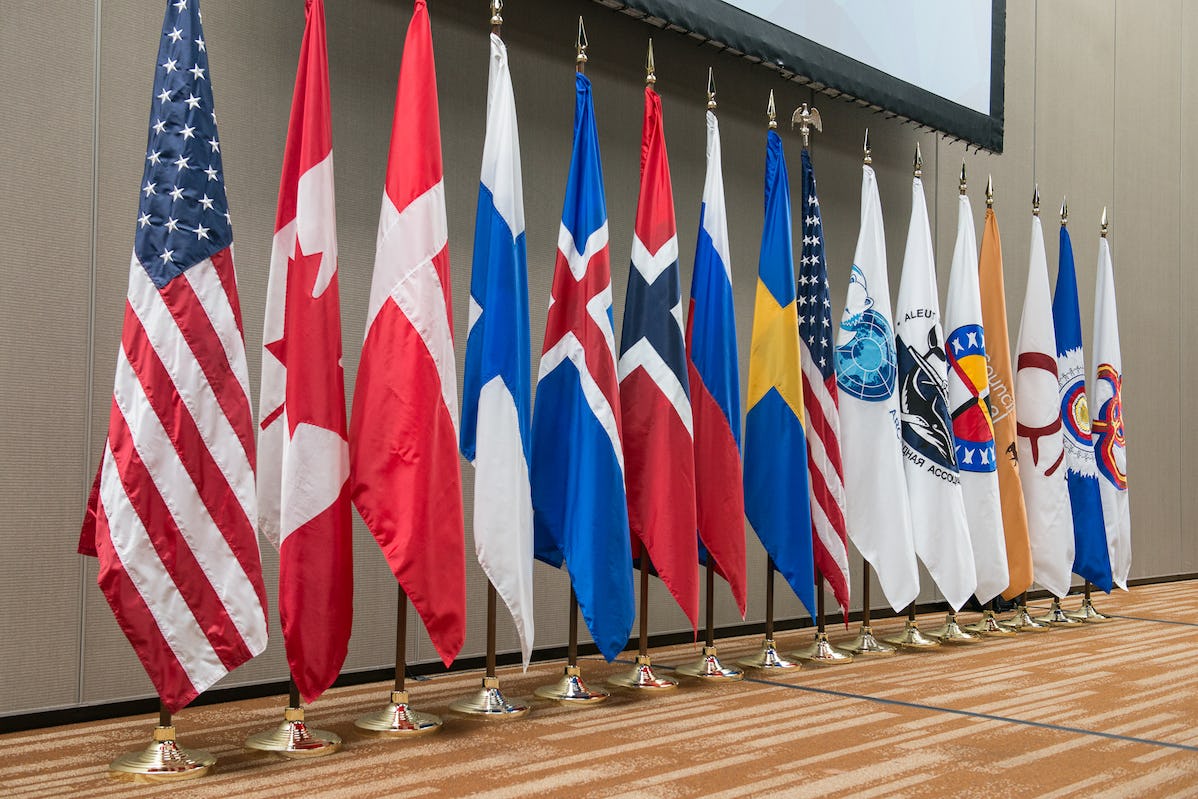Soft Securitization: Unconventional Security Issues and the Arctic Council

The flags of the eight Arctic Council Member States and six indigenous Permanent Participant organizations. Photo: Arctic Council Secretariat / Linnea Nordström
In a rapidly changing Arctic, there is a need to engage in a comprehensive investigation into what Arctic security means in the 21st century. Together with the Danish journal POLITIK, The Arctic Institute has, thus, published a Special Issue, which aims to widen the debate on Arctic security relations through a more comprehensive dialogue inclusive of the many different types of security, their interactions, and their challenges.
The Arctic Institute Arctic Security Constellation Series 2017
- Arctic International Relations in a Widened Security Perspective
- Desecuritization as Displacement of Controversy
- Soft Securitization: Unconventional Security Issues and the Arctic Council
- Regional Order in the Arctic: Negotiated Exceptionalism
- Arctic Indigenous Societal Security at COP21
- Post-colonial governance through securitization?
- What Kind of Nation State will Greenland be?
- The Arctic Security Constellation
Soft Securitization: Unconventional Security Issues and the Arctic Council
The Arctic Council is the principal institution for Arctic regional governance, and it is involved in numerous activities in the Arctic region. Although its mandate explicitly excludes matters related to military security, some scholars have argued that the Council nonetheless contributes to Arctic security governance through its coordinating and policy-shaping role on a variety of topics essential for the interests of states and human wellbeing in the region (Charron 2012; Chater 2014; Chater and Greaves 2014; Greaves 2013; Wilson 2016). In this sense, the Arctic Council can be viewed as an unconventional security actor that contributes to framing different policy areas in ‘security’ terms. However, there has been limited empirical analysis of which issues the Arctic Council frames as security-relevant through its declarations and other official outputs, and what the specific security implications of those issues are understood to be. This article contributes to understanding the Arctic Council’s role as a security actor in the context of a rapidly changing circumpolar region, and provides a starting point for assessing securitizing moves by a regional international governmental organization. As such, it asks: Does the Arctic Council use security language to depict particular issues as relevant to Arctic security? How does the Arctic Council understand the ‘security-ness’ of those issues? Methodologically, the article undertakes textual analysis of the Council’s publicly available online documents, including multilateral agreements and declarations, policy papers, working group reports, public statements, and other related sources. It examines the Council’s use of security language to assess whether such rhetoric is mobilized to identify specific threat-referent relationships or whether such rhetoric is mobilized in an ‘adjectival’ sense that does not construct particular issues as existentially threatening.
Wilfrid Greaves is Assistant Professor of International Relations at University of Victoria and Daniel Pomerants is a PhD Student at the Department of Political Science, University of Toronto.